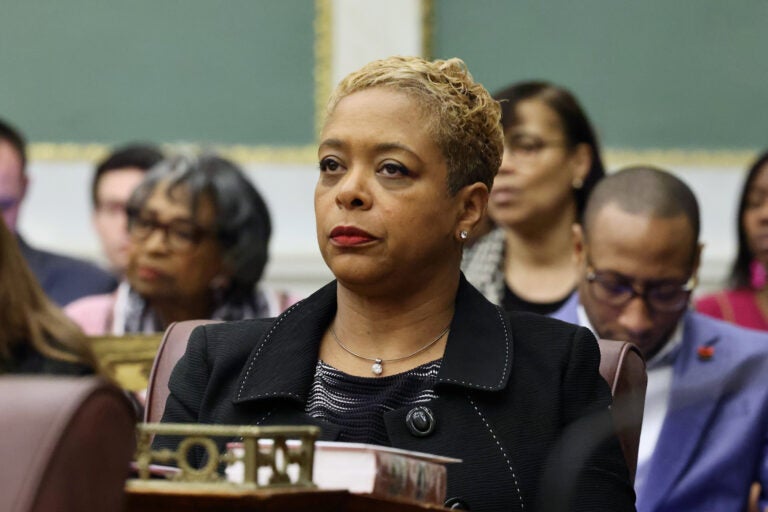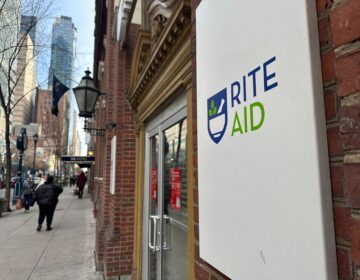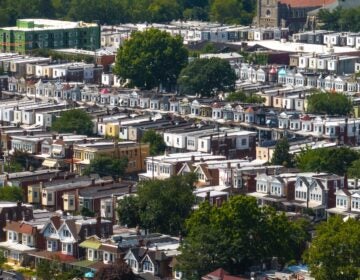Does Philly’s law to crack down on businesses being bad neighbors work?
It’s against the law to run a business that’s a nuisance to the community, but the city of Philadelphia struggled to shut down bad actors.
Listen 1:13
Philadelphia City Councilmember Cindy Bass. (Emma Lee/WHYY)
From Philly and the Pa. suburbs to South Jersey and Delaware, what would you like WHYY News to cover? Let us know!
About eight years ago, Philly City Councilmember Cindy Bass joined then-Mayor Jim Kenney to sign a new citywide law.
After decades of communities struggling to hold businesses who were being bad neighbors accountable, there was hope the city would have the power to shut down any businesses that allowed any illegal activity nearby.
It was a simple system: Neighbors would report a business, the city would keep track of violations, notify the business of the issues and either force them to stop or threaten to shut them down. If the businesses didn’t comply, the store would be shuttered.
But it’s unclear whether the city shut down any violators, as a public records request by WHYY News yielded not a single store closed as a result of this law.
Or, at least, the city has yet to issue a final cease operations order, despite being given the power to do it for eight years.
That doesn’t mean there aren’t businesses the city is watching after getting complaints or through internal investigations. A sampling of six different police districts shows there are at least seven businesses being monitored for chronic issues as of January 2024. But the city won’t reveal any addresses, citing potential non-criminal investigations such as complaints which are shielded from public review under state law.
Those active investigations are in part because in recent months, city leaders — including Councilmember Bass — realized that the law needs more attention to work.
The law defined a nuisance business as an operation that either allowed or participated in illegal consumption of alcohol, drug activity, street and sidewalk obstruction, gambling, loitering, public urination, prostitution, littering or parking vehicles on sidewalks in front of the business.
Any business with at least three violations within 60 days or seven violations in 12 months would be considered a chronic nuisance business and forced to work with the Philadelphia Police Department and the Department of Licenses and Inspections to do an abatement plan to try and stop the illegal activity. The plan was that community organizations and neighbors could participate in the process with L&I.
For example, residents would call or send a message to the citywide helpdesk — 311 — and a business could be flagged for further review.
“This would be reported and then it would begin to build up a file on this particular business so we could have some enforcement action,” Bass told WHYY News in November 2023.
Except that 311 didn’t create a category for such a complaint, she said. And neither did L&I, which was supposed to work with the City Council and the police on the issue.
“So [the citizen complaint] doesn’t go anywhere. So there’s no capturing the data to be able to address the issue,” Bass said. “It’s an administrative process, something that’s going to require an administrator to sit down and sort out the nuts and bolts of it. To put some teeth in this thing.”
That doesn’t mean questions, complaints or calls for help haven’t come into the city’s 311 system about how to report nuisance businesses such as delis, bars or convenience stores. There were 75 complaints between 2019 and 2024, records show.
There’s more likely to be crime when there’s lawlessness, said Councilmember Curtis Jones Jr., who has been battling nuisance businesses for years — whether the store is selling shots of liquor, single cigarettes or customers who hang out in their store selling illegal drugs.
“We want to deal with the crime and hold businesses accountable for what goes on in their facilities,” Jones said. “Commercial corridors are mirror reflections of the communities. Some businesses don’t care. We’re going to insist that businesses are good neighbors to the community.”
Violence is common around these nuisance businesses. In early February, a 21-year-old man was shot and killed inside a convenience store at the corner of 40th and Market Street in University City. That same store was where a 19-year-old was murdered, city Councilmember Jamie Gauthier told WHYY News in November 2023.
“What we found out is that even though we work with the Philadelphia Police Department to put it together, it wasn’t part of their formal system for reporting nefarious activity in the community,” Bass said.
In November 2023, City Council worked with the police department to create a new computer mapping system that will track these nuisance businesses and streamline the process to crack down on bad actors. That same month, the city created a nuisance business unit with three dedicated police department employees who are tasked to investigate and enforce the law.
In the meantime, the Philadelphia Police Department advises any neighbors interested in filing a complaint against a nuisance business in their community to contact 311.
There’s still an opportunity with the law on the books to make a dent in the types of businesses in neighborhoods; the removal of any bad actors could encourage a more vibrant commercial community, Bass said.
“This could jumpstart commercial corridors, particularly those that we’ve seen significant decline over the years,” she said. “If you just have the right business mix and the right enforcement tools in place.”

Get daily updates from WHYY News!
WHYY is your source for fact-based, in-depth journalism and information. As a nonprofit organization, we rely on financial support from readers like you. Please give today.







